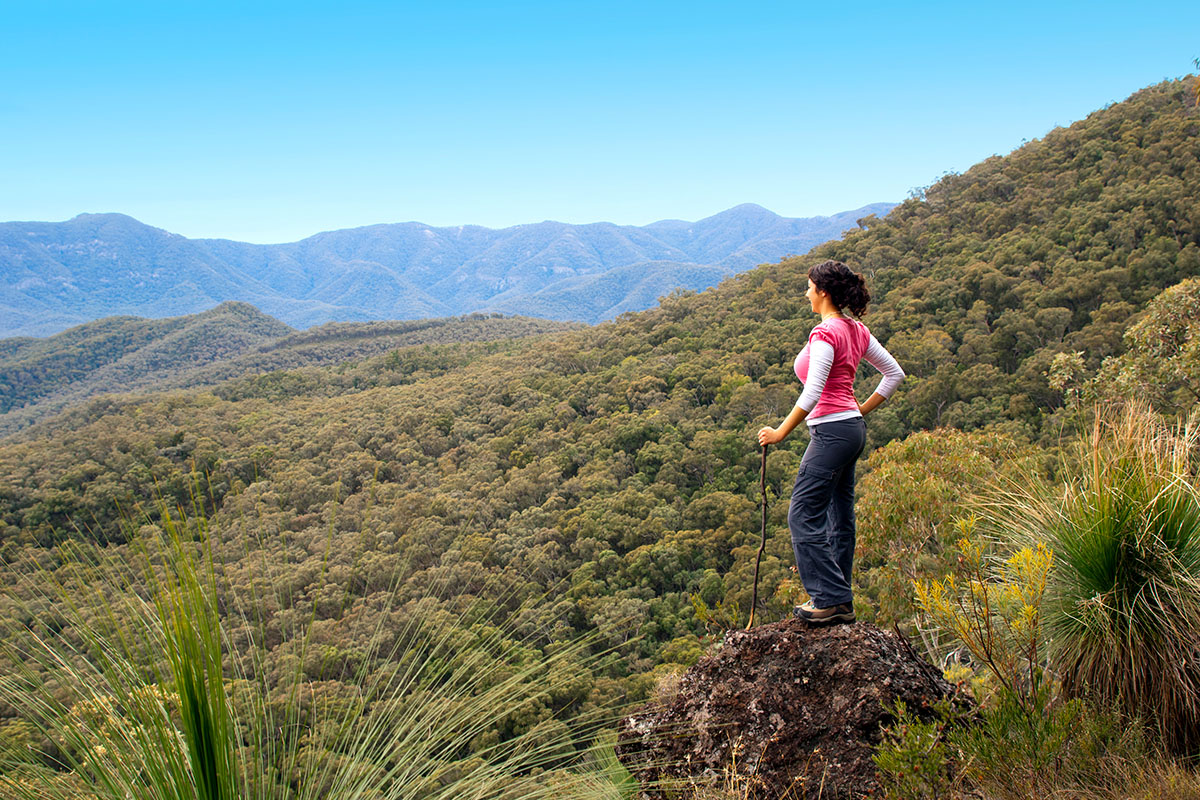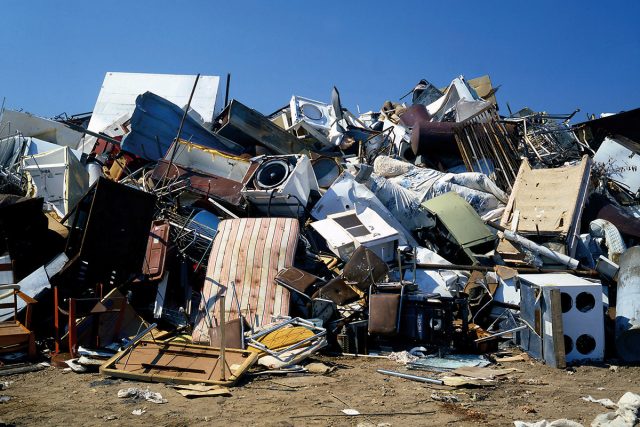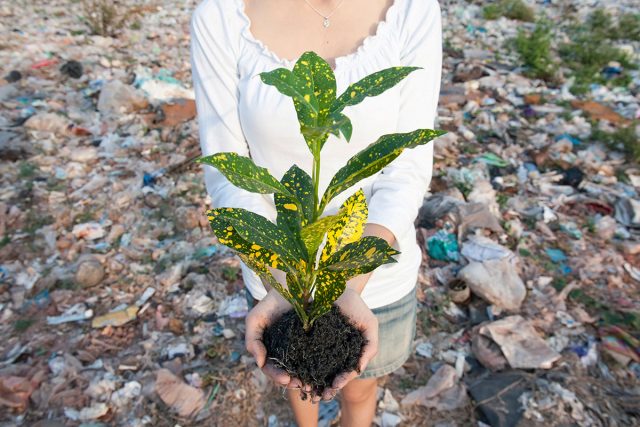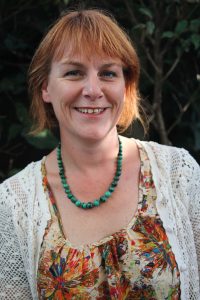 It was a serendipitous moment when I was asked to write an article on living with a minimalist approach. I was spending my Christmas holiday on a mountain in Southern Australia, in a town that consisted of five streets and two stores.
It was a serendipitous moment when I was asked to write an article on living with a minimalist approach. I was spending my Christmas holiday on a mountain in Southern Australia, in a town that consisted of five streets and two stores.
a broken fridge
I had no mobile reception, minimal internet access and no television. The owners of the bush retreat (a fancy word for an isolated cabin) where I was staying owned another property further into the mountain on a dirt track. They invited me to go for a walk on their property which, even in the summer heat, was surrounded by bountiful wildlife and mostly untouched bushland. Their abode had no electricity, no phone and no toilet. I was right in the thick of the article I’d been asked to write.
They visited me on the way into town, asking to use my refrigerator for a while as their “retro” gas one, the size of a small icebox, had broken down. Now they had nowhere to keep their food cool.
It reminded me of a dear elderly woman that I had met whilst working as a case worker to support victims of a bushfire. She also lived alone, humbly, and was still chopping her own wood at the age of 83. She also had a broken fridge when I met her, but this was of no concern, as her priority then was to help others who had lost more than her in the fires. What struck me about the people I met then, was that they were very happy with owning very few material possessions. Their happiness did not come from what they had. Their happiness came not only from simplifying their life but they didn’t feel a sense of immediacy or desperation to replace an item which most of us would consider essential for daily living. They didn’t feel they had any less or that they were unable to cope with the situation. In fact, they felt a deep sense of gratitude in their relationships with others over material possessions.
when less is more
Confucius, the Chinese philosopher, wrote, ‘life is really simple, but we insist on making it complicated’. So with my ‘Less Is More’ holiday at my fingertips, I asked myself three questions. Do we complicate our lives more by increasing what we have; by striving to have bigger, better, more prestigious items? Does possessing more create an illusion of happiness, something which fits our ego into believing that we have “made it” in the world, and keeps us comparing ourselves with others rather than being happy within? Are we therefore making a choice about what we perceive are needs as opposed to wants?
This leads me to think more about the meaning of living minimally. For some, minimalisation could mean ‘the intentional promotion of our greatest passions and the removal of everything that distracts us from them’. It could be simplifying our life down to meeting our basic needs. For others, it’s an art movement where minimalistic fashion can actually mean accumulating ‘things’ that cost a fortune!
I’m talking about keeping it simple and the feel good benefits for living a simplistic lifestyle. In the very basic sense, living with a minimal lifestyle is about trying to live with less. It’s about trying to get back to the bare minimum of possessions and in doing so, it frees up your life to pursue the things you most value.
modern life
 The Industrial Revolution not only created a new onset of change in mass production. It also brought with it the diminishing role of hand crafts. The machine began to replace the historical knowledge and traditions of the personal interactions between texture, fibre, and nature as well as the social interactions within daily life.
The Industrial Revolution not only created a new onset of change in mass production. It also brought with it the diminishing role of hand crafts. The machine began to replace the historical knowledge and traditions of the personal interactions between texture, fibre, and nature as well as the social interactions within daily life.
The ways of the old are often mocked in modernity as laborious traditions with little value other than being “hard work”. But with increasing concerns for the environment, we are now realising that the Industrial Revolution has a lot to answer for. Here are a few points to consider about the amount of waste we produce…
Every 2 hours we throw out enough items to fill the world’s largest container ship with trash. That’s 12 container ships every single day, and 4380 container ships in one year and our waste production is increasing.
By 2030 the amount of household waste will almost double to 3,000 million tons annually. And this is just the tip of the iceberg. Every bag of household waste has produced approximately 70 bags of waste upstream during extraction and production processes.
So where does our waste go? Most waste goes to landfills or is burned. Burning waste is the world’s largest source of dioxins, which is one of the most toxic chemicals known to science.
we have the power to create change
According to WHO (World Health Organisation), dioxins are highly toxic and can cause reproductive and developmental problems, damage the immune system, interfere with hormones and also cause cancer. Sounds bad right? Well, the answer is yes, it IS bad. But with the knowledge and information at hand, we have the power to create change.
making a difference
So you might be wondering how you can make an impact in reducing waste. With a modern day awareness of how much waste is produced, many have consciously chosen to have less in their life: less of chemicals, less paper, less plastic. The most common reasons for choosing less are often environmental concerns and making a conscious effort to look after the world rather than treat it as one huge dumping ground for toxins.
But this is changing to a more fundamental reason. To reduce what we own is a resurgence and appreciation of traditional means of production such as handcrafted goods and consuming unprocessed foods. It wasn’t that long ago that living a simpler lifestyle was though of ‘just a hippie movement’. Now, reducing what we have and looking at how we can all incorporate living a simpler lifestyle is a topic that has become a much sought after part of modern culture. The increase of Internet sites, such as etsy.com, thrive on people selling their homemade wares.
Recycling is another modern‑day example of making a conscious decision to reduce waste. Most households separate waste into general waste and items that can be recycled. Councils might provide recycling bins and even provide workshops on how to recycle or turn waste into compost.
In Australia, we had a Federal Government ‘Reduce Reuse Recycle’ campaign, as did the US National Institute of Environmental Health Sciences. It has now become embedded in the modern psyche (for many people) in teaching that we can all play a part in minimising waste. And an important component of minimising waste is reducing “stuff”.
clearing our mind clutter
When we consciously choose to reduce the amount of belongings we own, or materials in our household, we have less. We have less to clean, less to throw out, less to see, so less to take up our thoughts and time.
By reducing – or minimalising – all the “extras” in our life and household, we are in fact reducing the time spent on things which are unnecessary, take up our time and energy, and which can lead to living a stressful life.
By deciding to live a life which is “more minimal”, we are creating a step towards clearing out our “mind clutter”.
One of the best benefits we gain from embracing a minimalist lifestyle is that there is less stress in our daily life. Less spending means less debt hanging over our head. There’s less concern to make more money with which to buy the next gadget. Creating simple changes in our lifestyle through proactive and ethical choices means we begin to turn our values outward rather than inward. We then begin to think of the ways in which we live and how it affects our home, our environment and the world.
creating more with less
When we decide that we don’t need to clutter up our lives with placing absolute value on material objects, we begin to place value on the simple things in life. These are the things that bring pleasure to ourselves and to others. In doing so, we develop a sense of harmony and wellbeing. And this creates less stress.
 That doesn’t mean we have to go without a fridge or a toilet (or toilet paper!), but it does mean that we have a choice about how we can then reduce the material possessions that weigh us down. This could be the paperwork that hasn’t been sorted for years, the knick-knacks collecting dust, clothing which longer fits, or unused kitchen items.
That doesn’t mean we have to go without a fridge or a toilet (or toilet paper!), but it does mean that we have a choice about how we can then reduce the material possessions that weigh us down. This could be the paperwork that hasn’t been sorted for years, the knick-knacks collecting dust, clothing which longer fits, or unused kitchen items.
Once we decide that these items are not necessary to help with daily living, we can be active in finding a new home for them. There also comes pleasure from giving away items to people in need. You can do this by joining a ‘Pay It Forward’ group, holding a garage sale, giving to local charities and organisations. In giving to others, we not only reduce our belongings, but we begin to feel good in making a positive change for someone else.
For many of us, these are life changing things. They can seem daunting — and stressful — but they don’t have to be. Take one step at a time. Reduce little by little. Look at things and ask, ‘do I really need this?’. If the answer is ‘no’, then you’re on the right track. If the answer is ‘yes’, take a moment to think about it, think of the alternatives, think again, and if the answer is still ‘yes’, then go ahead and keep it.
Now look around your home, open up your wardrobe or kitchen drawer, you’ll see items that are no longer useful, helpful or wanted. So why wait? Get started in reducing your waste and creating a stress free lifestyle, you’ll be glad you did.
Minimisation is about simplification and getting back to basics, to appreciate and enjoy what we have. It’s not a punishment, but a gift we give to ourselves.
 Ruth Myers is a professional counsellor in Sydney’s Blue Mountains. She has worked in a range of roles involving family support, mental health, trauma, early childhood and disaster recovery. She believes in identifying a person’s strengths and and assists in creating personal change through the use of their own strengths and hopes.
Ruth Myers is a professional counsellor in Sydney’s Blue Mountains. She has worked in a range of roles involving family support, mental health, trauma, early childhood and disaster recovery. She believes in identifying a person’s strengths and and assists in creating personal change through the use of their own strengths and hopes.
She is a mother of two children who continually teach her about life; the joys as well as the challenges. She also continues to study in the field of Psychotherapy with a particular interest in loss and grief. She enjoys bushwalking, yoga, long drives and good coffee.
http://www.ruthmyerscounselling.com.au
